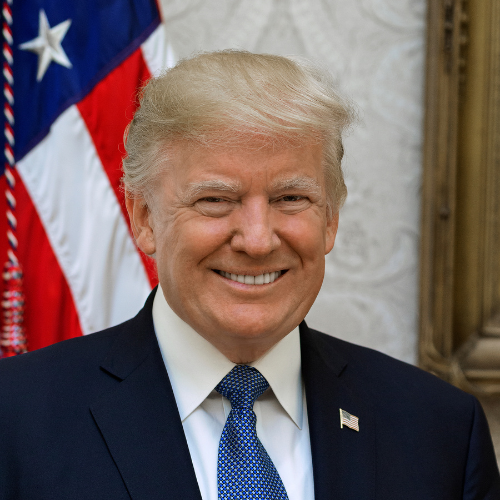If Donald Trump returns to the White House, analysts say he is likely to take a hard line on Iran’s oil exports. Former President Donald Trump has criticized the current administration for not enforcing U.S. sanctions against Iran strictly enough, claiming this has allowed Iran to fund its nuclear program and expand its regional influence. But while Trump might work to restrict Iran’s oil trade, he faces a major hurdle: China, Iran’s largest oil customer, which could complicate any efforts to cut off Iran’s oil revenue.
This potential clash between the U.S. and China over Iran’s oil trade could lead to economic ripples that affect everything from gas prices to international trade relations, experts say. Here’s what we know about how Trump’s policies might impact the global oil market.
Tougher Sanctions on Iran’s Oil Could Reduce Global Supply
When Donald Trump was president, he took a “maximum pressure” approach to Iran, which included imposing strict sanctions on the country’s oil exports. These sanctions aimed to limit Iran’s ability to earn money from oil sales, cutting off funds that the U.S. believes are used for military activities and nuclear developments. Trump left a nuclear deal with Iran in 2018 and re-imposed these sanctions, which significantly reduced Iran’s oil exports for a time.
If Donald Trump returns to power, analysts say he might quickly resume these policies. Jesse Jones, a leader at the energy research firm Energy Aspects, noted that the Trump administration could reduce Iran’s oil exports by as much as 1 million barrels per day simply by enforcing sanctions that already exist. Research group ClearView Energy Partners estimates that between 500,000 to 900,000 barrels per day of Iranian oil could be kept off the market under strict enforcement.
But with global oil demand and supply balancing delicately, removing this amount of oil from the market could raise prices worldwide. Clay Seigle, a board member of the Houston Committee on Foreign Relations, commented that such a move would likely increase oil prices, which might lead to higher gasoline costs.
The “Million-Dollar Question”: How Would China Respond?
One of the biggest obstacles Donald Trump could face in enforcing sanctions is China. China is Iran’s largest oil customer and does not recognize U.S. sanctions, meaning it does not feel legally bound to follow them. To avoid U.S. restrictions, China and Iran have developed a trade network that relies on currencies other than the U.S. dollar, like the Chinese yuan. They also use a system of middlemen to keep the deals hidden from U.S. regulators.
China’s Veiled Warning to the US: Espionage Surge in Hawaii Sparks Security Concerns
According to Richard Nephew, a Columbia University professor who previously worked on U.S. sanctions policy, putting financial pressure on Chinese banks and companies could be difficult. China could choose to retaliate by deepening its ties with other countries in the BRICS club, a group that includes Brazil, Russia, India, China, and South Africa. If China reduces its reliance on the dollar, it could complicate America’s influence over international financial transactions, weakening the power of U.S. sanctions.
Donald Trump has acknowledged the delicate balance of using sanctions. While he has expressed a willingness to impose strong sanctions, he has also cautioned that sanctions can weaken the dollar’s status globally if overused. He told the New York Economic Club in September that while sanctions can be powerful, they need to be used carefully to avoid long-term damage to the dollar’s value.
Potential Complications from Donald Trump’s Domestic and International Policies
Analysts also believe that while a hard stance on Iran might push oil prices up, Donald Trump’s other economic policies could have the opposite effect. For instance, he has suggested imposing high tariffs on imports to support U.S. manufacturers, with rates as high as 60% on goods from China. Clay Seigle points out that such high tariffs could lower economic growth by raising the cost of imports, which could reduce demand for oil and cause prices to drop.
Another factor is Trump’s stance on Russia. Trump has hinted that he would be open to easing sanctions on Russia, which have been in place since the start of the Russia-Ukraine war. These sanctions currently cap the price of Russian oil sold using Western financial services, limiting Russia’s oil revenue. If Trump were to lift or ease these sanctions, Russia could freely sell oil without restrictions, adding more oil to the global market and possibly pushing prices down.
Ed Hirs, an energy expert at the University of Houston, suggested that Trump would likely remove these sanctions, given his campaign promise to address the conflict between Russia and Ukraine before he even takes office.
Donald Trump’s policies on Iran and oil, if he returns to power, could send ripples across the global economy. Analysts warn that a hard line on Iran would not be simple to enforce because of China’s role as a major buyer of Iranian oil. Any moves to restrict Iran’s exports would require navigating a complex international landscape, with the potential for new challenges from trade policies and relations with countries like China and Russia. How these policies interact could shape the future of global oil prices and economic relations among the world’s major powers.


